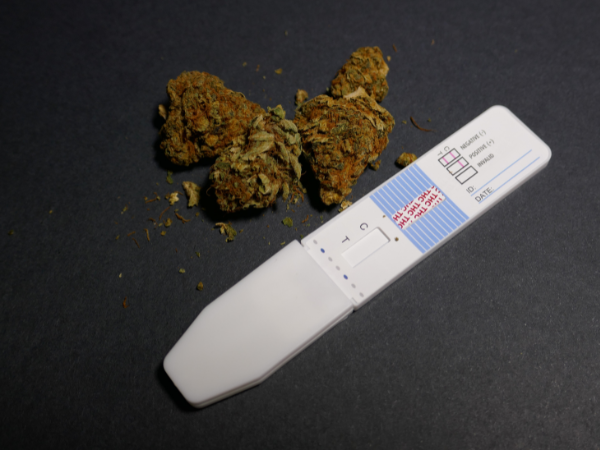If you own a company or organisation which operates in the UK, it is essential to be conversant with current UK law, and to keep up to date with any amendments or new laws related to employees' drug and alcohol misuse. Being United Kingdom's Number One supplier in the field of on-site drug and alcohol testing, Drug Testing Kits UK, is renowned as the go-to source for information on UK law and regulations. Moreover, we are always abreast of any changes before they happen. To that end, if you have any questions or concerns regarding the types on on-site drug or alcohol testing kits that would be most suitable for your company, organisation, or institution, do not hesitate to email or call our highly trained, professional, Drug Testing Kits UK FREE Customer Service Advice Line.
Protecting Your Company, Employees & the General Public
“In order to understand the legal issues surrounding workplace drug or alcohol use, employers need to understand a disjointed mixture of rules that are derived from two main sources: legislation passed by Parliament, & case law (AKA judicial precedent)” [1]
A large percentage of the available legislation concerns drug use in the workplace (e.g. the Misuse of Drugs Act 1971). However, aside from the regulations prohibiting drink driving, only a moderate percentage of legislation addresses the use of alcohol. By contrast, case law offers substantial guidance on how to manage employees who have alcohol issues [1].
When it comes to matters that derive from abusing both drugs and alcohol in the workplace, these are also dealt with under General Employment Provisions. - The latter of which are configured to deal with broader issues; for example, duties connected to: “the health, safety and welfare of employees at work, and implied contractual terms - including the term which means that neither employer nor employee will act so as to breach the duty of ‘mutual trust and confidence’ that exists between them” [1].
Common Law Duty of Care
Negligence under what is referred to as the Common Law Duty of Care, means that:
“All employers must take reasonable care of employees, or they may be able to bring a claim of negligence. If an employer allows an employee to continue to work when under the influence of drugs or alcohol, there is, at the very least, a risk that the duty of care may be breached. The employer may also be vicariously liable for the negligence of the intoxicated employee. Employees have an individual legal responsibility in relation to their colleagues & their own health & safety. & could be sued for negligence along with the employer, if they fail to carry out their work with reasonable care due to the influence of drink or drugs, & cause damage or injury as a result” [1]. And this is why Drugs Testing Kits UK has been so instrumental in advising & providing on-site testing kits to all industries & countless companies, organisations & institutions across the length & breath of the country
Changes Afoot
It is important to know that some aspects of current UK law will soon be outdated. For example, the primary Misuse of Drugs Act 1971, is close to 50 years old, making the nature of drug use and the availability of drugs in the early 70s, extremely outdated. Moreover, the 1971 legislation is not compatible with the new drugs on the market, or the present levels of drug use. To that end, the Act is periodically amended to include new drugs when they evolve [1].
In the same vein, the proposed changes and amendments to legislation on alcohol, mainly concern drink driving. Moreover, as the applicable legal provisions have to be adjusted, and in some instances, require time to be modified, from the standpoint of an employer, it is essential to maintain a well-founded drugs and alcohol policy, as opposed to being totally reliant on the law [1]. This policy should include regular on-site drug and alcohol tests. Drug Testing Kits UK have a plethora of approved leading-edge drug and alcohol tests, so please contact our Drugs Testing Kits UK Customer Service Advice Line, or send in an email, to see which options are the best to meet your company's/organisation's needs.
Policy Layout
Generally speaking, policies should cover several stages. In the first instance, they should home in on:
- Employee protection
- Prevention
- Support
- Early Intervention [1].
Furthermore, you need to incorporate processes for handling more serious aspects that come about from abusing substances in the workplace. Moreover, you should make all employees aware of the policies, along with any disciplinary steps that may need to be appropriated if cases cannot be resolved any other way [1].
Legislation: The Basics
The main elements of legislation pertaining to drug and alcohol misuse in the workplace, are as follows:
- Misuse of Drugs Act (1971)
- Health and Safety at Work etc., Act (1974)
- Road Traffic Act (1988)
- Transport and Works Act (1992)
- Railways and Transport Safety Act (2003)
- Air Navigation Order (2016)
- Employment Rights Act (1996)
- Human Rights Act (1998)
- Anti-social Behaviour Act (2003)
- Equality Act (2010)
- Equality Act (2010) (Disability) Regulations (2010)
- Psychoactive Substances Act (2016)
- Data Protection Act (2018) [1].
Vicarious Liability
When it comes to the law relating to drugs and alcohol in the workplace, vicarious liability common law principles are often essential. In a nutshell, the vicarious liability legal test, implies that:
“Employers will be liable for wrongful acts of employees that are carried out in the course of employment & sufficiently closely connected with the employment, to justify the imposition of liability. Employers are therefore, exposed to liability when there is an increased risk of inappropriate behaviour & injury from alcohol or drug consumption, for example at an office party” [1].
Of note, there are limitations to the scope of vicarious liability [1].
Developing Your Company's Policy, Process & Culture
In order to mitigate any risks, and protect the safety of your employees, you must deal with alcohol and drug misuse through:
- Early detection - this can be done by conducting regular on-site drug and alcohol tests. If you use approved tests from Drug Testing Kits UK, you do not need to arrange for a nurse or other medic to come in. Further, as the kits are all superior quality; extremely simple to use, and produce highly accurate, quick results, any member of staff can be appointed to administer them
- Intervention – you can foster a supportive working environment by supporting employees who have and alcohol or drug problem. If the issue is not severe, then you could refer them to an outside organisation which could provide professional help to get them back on track. If the problem is very serious, then you may need to contact a solicitor who can look at ways to terminate their contract
- Support – show support for employees who are taking positive action, whether disciplinary action is being taken or not. Arrange for a dedicated person in HR to have regular meetings with them to monitor their progress. Be sure to get these employees to sign an acceptance form which gives your company/organisation the permission to conduct random drug and alcohol tests. Of note, the state-of the-art tests offered by Drug Testing Kits UK, are unobtrusive, and the testing process is very quick, thus making them more favourable for employees who may feel on edge
- Culture - Companies/organisations that strive to take a comprehensive approach to employee's health and well-being, need to establish a encouraging workplace culture which guards the interests of both the company/organisation and its employees. - This empowers them to provide support for issues linked to alcohol and drug abuse, before they turn into disciplinary issues [1].
“The overall aim of a drug/alcohol policy is to develop a supportive workplace with consistent processes that look to assist staff with health & well-being issues, while also setting out clear expectations of staff behaviour, & the potential consequences for failing to meet these expectations” [1]
How Regular On-Site Drug Testing Can Help Avoid Disciplinary Issues
No one wants to have to deal with disciplinary issues, be it the company/organisation, or the employee. To that end, it is crucial to have a good strategy in place to negate such issues. This should incorporate regular random on-site drug and alcohol testing (please see the extensive list of premium quality Drug Testing Kits UK, drug and alcohol testing kits), as this serves to deter the majority of employees from stepping over the line. - The ones that do, are likely to be addicts that have not been recognised as such, by their past or current employers. For example, in the past, they may have restricted their habit to outside working hours, but now changed to needing a fix at, or just before work.
Reference
[1]. CIPD (2020). “Managing Drug & Alcohol Misuse at Work: A Guide For Employers.”
https://www.cipd.co.uk/Images/drug-alcohol-misuse-work-guide-web_tcm18-83082.pdf



 03333 704 704
03333 704 704




